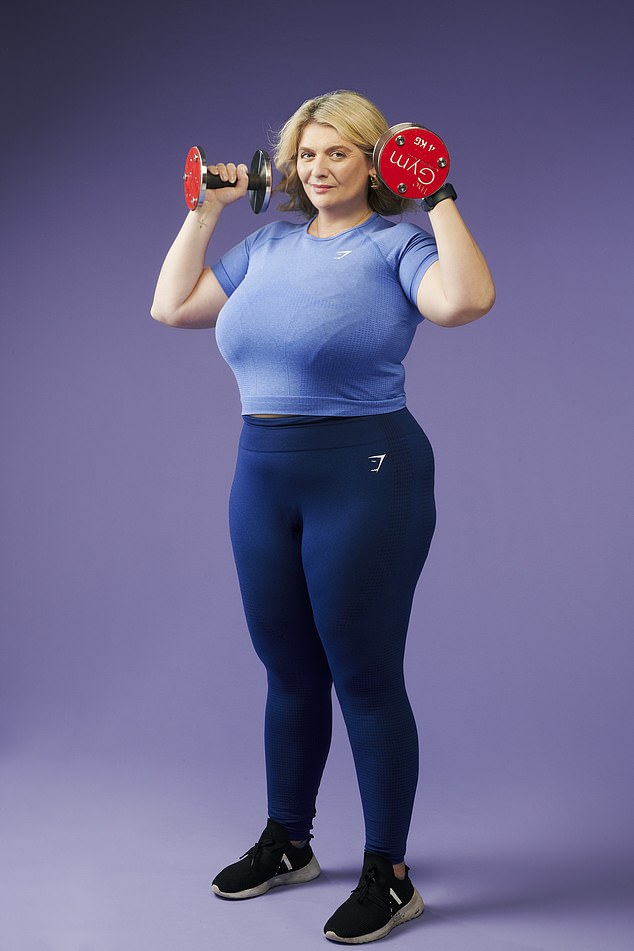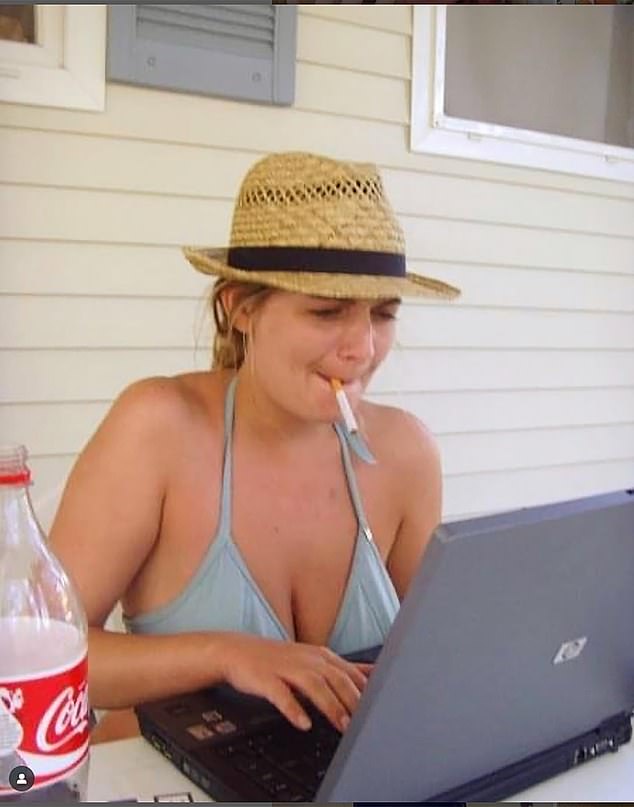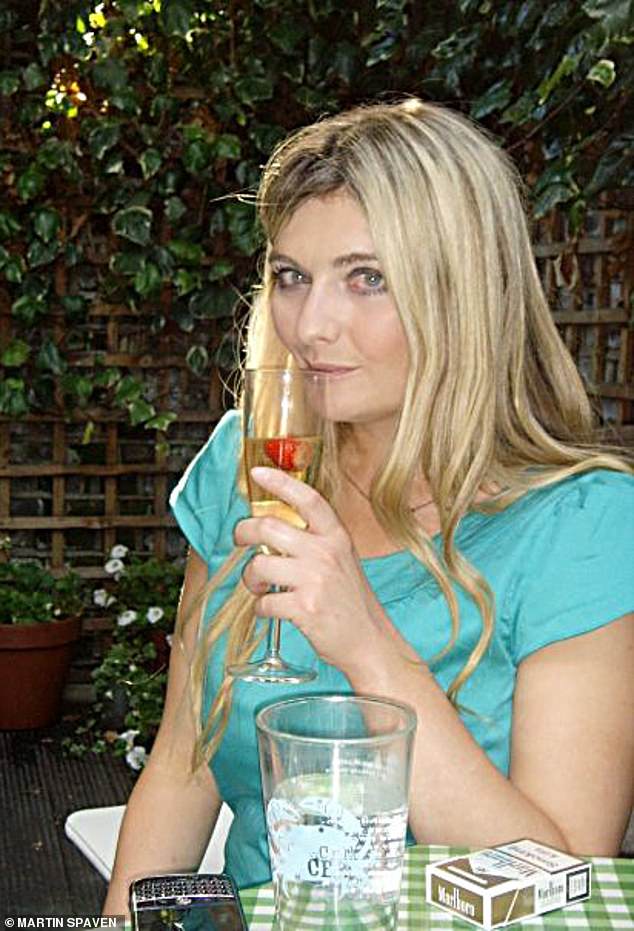For the first 37 years of my life, I treated my body like a pharmaceutical dustbin. If I saw something that promised to deliver me a quick, cheap high, I couldn’t stay away from it.
As a child, it was the sugary sweets that I knew I wasn’t allowed – but craved anyway – stealing pick’n’mix from Woolworths to shovel into my mouth when I thought nobody was looking.
At 14, I tried alcohol for the first time, round the back of the railway arches with a friend. Between us, we polished off a litre of cider and a half bottle of paint-stripper vodka.
I came round a couple of hours later in a pile of my own vomit. Undeterred by the grimness of this experience, I was back at it the next weekend, my burgeoning bond with alcohol soon to become the most significant relationship of my life.
By 15, I was smoking a packet of cigarettes a day. Not just any old cigarettes, but the super-strong Marlboro reds that burnt the back of your throat and left it feeling like sandpaper. I regularly smoked cannabis, and there was a period during my GCSEs when my friends and I experimented with amyl nitrate poppers.
In my 20s, I discovered cocaine, and I was off to the races – it would end up leaving the nose cartilage in one nostril permanently weakened, but all I really cared about was its ability to sober me up so I could carry on drinking for longer.
Perhaps unsurprisingly, all of this was backed by the soundtrack of mental illness: eating disorders, depression, suicidal thoughts, extreme anxiety.
As I sit here writing this, I can see that it’s a miracle I’m alive at all. It wasn’t just the chemicals, toxins and drugs that I pummelled my body with that put me at risk, but the behaviour I engaged in while I was on them.

Bryony Gordon is now sober and runs about 100km a month
My blackout drinking led me to dark places and to engage in risky sex. When I washed up in rehab eight years ago, finally accepting that I was an alcoholic and an addict, I could see that most days, there had been a frighteningly thin line between me finishing a night dead or alive.
So when I was asked to appear on a new podcast where guests – including the actress Dame Sheila Hancock and comedian Romesh Ranganathan – have their biological ages tested, then revealed halfway through the recording, I initially baulked at the idea.
Could I handle finding out that I had the biological age of my long dead grandmother? Could I deal with the host, the comedian Katherine Ryan, delivering me the news with her trademark deadpan humour?
Wouldn’t it be embarrassing to discover I only had minutes left to live, on a podcast that could potentially be listened to by millions of people?
Well, yes. But it was too late. By the time any of these things had properly crossed my mind, the impulsive addict inside me had already agreed to appear on the What’s My Age Again? podcast.
A part of me, I admit, was intrigued to know just how much damage I had done to my body over the years. Perhaps it would be the kick up the behind I needed to adopt a few more healthy habits, as I approached the midway point of my 40s.
And so it was that a few months ago, one of the producers of the podcast turned up at my house to carry out the GlycanAge test, which works by measuring inflammation markers in your blood.
As I pricked one of my fingers and allowed my blood to drip on to a piece of card, I thought it would be nothing short of miraculous if it put me at anything below 88.

A younger Bryony smokes a cigarette
The results of the £289 test can take up to five weeks to process because of the number of different assessments. Scientists analyse the number and type of ‘glycans’ in your blood, chain-like structures which play a critical role in most biological processes and determine whether your cells will experience inflammatory or anti-inflammatory reactions. Through this, they are able to come back with a clear picture of the overall health of your body.
Arriving at the studios for the recording a couple of months later, I was convinced that Ryan was looking at me in a pitying manner, one that suggested I was on my last legs.
Recording the interview, which explored my attitudes to ageing and my general experiences of life, I could barely sit still for wanting to know my result.
Forty minutes in, she pulled out a gold envelope that contained my result. As she opened it, I wondered if my heart was about to take some of its last beats. My stomach flipped.
Then she told me that my biological age was . . . 26.
My response to this incredible news was to laugh hysterically. Had my results been mixed up with someone else’s? Had a super-healthy guest accidentally been told they had a biological age of 105? Out came Dr Nichola Conlon, a molecular biologist who specialises in the study of cellular ageing, to explain to me that, actually, she wasn’t as surprised at my results as I was.
‘You can’t do anything about your chronological age, but your age at a cellular level can change,’ she said. ‘Your lifestyle, the way you live your life, can have a massive impact on reversing biological ageing.
‘For a long time, we didn’t really think ageing was something you could reverse. We thought that once the clock had been started, that was it. But now, more and more evidence is coming out to show that this is something you can really impact with lifestyle changes.

Bryony tried alcohol for the first time when she was 14 years old
‘The body has this amazing capacity to bounce back from anything. It wants to bounce back. So even when people feel like they’ve got to a stage where they’ve ruined their health, there’s actually a huge light at the end of the tunnel.’
Dr Conlon explained to me that, while there is mixed evidence when it comes to the effect of alcohol on ageing – some studies say that having a small amount of alcohol can turn back the clock, while others say that no alcohol at all is safe – what is known for sure is that the body has to work extremely hard to process it. ‘When the body is trying to break it down, it’s not doing all the other repairing that it should be doing. It’s prioritising getting rid of the alcohol.’
Cocaine, says Dr Conlon, is one of the few drugs that has been studied in regards to ageing. Research shows that excessive use of it shortens your telomeres, which are the protective caps on your DNA.
‘When these get shorter, it causes your DNA to unwind, and this basically causes ageing.’
Was Dr Conlon saying that if I hadn’t taken cocaine, my biological age would essentially be ten? She laughed.
‘I think if we had tested you at 26, your biological age would be very different.’
Probably about 90, I reckon. So how have I come to be younger at 44 than I was at 26? ‘The good news is there is an enzyme in your body that fixes the telomeres and lengthens them again.’
Major lifestyle changes can quickly kick that enzyme into action.
And as I listened to Dr Conlon, I realised that, since getting sober almost eight years ago, I have managed slowly to build a life for myself that would have been completely unrecognisable to me a decade ago.
Before the podcast, I filled out a questionnaire that detailed my diet, sleep and exercise habits, plus any supplements I took. Dr Conlon said that, having read that questionnaire, she wasn’t surprised at all by my results.
I exercise for a minimum of an hour at least five times a week. I run about 100km a month, and go to the gym to do strength training a couple of times a week, to make sure I am supporting my bones, muscles and joints as I get older. I stretch every day for 15 minutes in an attempt to stay mobile. I go for infrared saunas, immerse myself in cold water.
The older I get, the younger I seem to feel. I barely did any exercise until my mid-30s and, while at first it felt excruciatingly hard, now I absolutely love it. And as I prepare for my 45th birthday in a couple of weeks, I’ve genuinely never felt better in my body.
I don’t smoke – I managed finally to quit two years ago – and my only really bad habit is scrolling Instagram when I should be making dinner.
But I’m usually in bed by 9.30pm, with a good book rather than my phone, and I prioritise self-care hugely: regular 12-step meetings to keep me sober, meditation and mindfulness, a massage a couple of times a month to relieve knots and stress. Additionally, I take omega-3 and vitamin D.
‘These are two dietary supplements that have also been shown to reverse biological age,’ says Dr Conlon. ‘So, without knowing it, you’re choosing things that are really benefiting your cells from the inside.’
I also take HRT, which will also be turning back the clock. ‘Oestrogen isn’t just associated with fertility,’ says Dr Conlon. ‘Every cell in your body has an oestrogen receptor, so you can imagine what happens when your oestrogen suddenly drops. It’s completely reversible with HRT.’
But what about my weight? At around 15 st, my BMI shows I am officially obese. ‘Everyone is individual,’ says Dr Conlon. ‘Genetics affect body size, as well as how you respond to different food and diets.
‘There’s also an interesting study which shows it doesn’t matter what type of food you are eating, it doesn’t impact on biological age. What impacts age is the amount of body fat you have. Reducing body fat by even a small amount can positively affect your biological age.’
This is all confirmation of something I have long suspected – that I am far healthier in a bulkier body than I ever was in a smaller, more aesthetically pleasing one, despite what trolls tell me time and time again.
Back in my 20s, when my BMI was ‘healthy’, I kept my weight down by existing almost entirely on a diet of cocaine and Quavers. Now, I eat three meals a day, refuse to deprive myself of treats (depriving myself only sends me into a pattern of disordered eating) and fuel my body properly for exercise with plenty of carbs. I may be curvier as a result, but I have far more energy and motivation too.
By the end of my discussion with Dr Conlon, I feel quite emotional. I still think of myself as the feckless alcoholic who didn’t really care whether she lived or died. But the results of my GlycanAge test are evidence of how much I have managed to turn my life around.
Now I know how much lifestyle really does impact health, the only problem is going to be stopping my obsessive, addict brain from trying to make my biological age even lower.
In the meantime, when it comes to marking my 45th, I know I can tuck into my birthday cake with abandon, safe in the knowledge that, for now at least, I really am getting younger.












